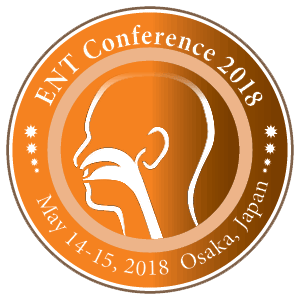
Lakshmi Vaid
Director professor & head ENT Department in University College of Medical Sciences & GTB Hospital
Title: EFFECT OF MEDICAL TREATMENT ON ERADICATIO OF BIOFILMS IN CRS
Biography
Biography: Lakshmi Vaid
Abstract
Chronic rhinosinusitis is one of the most common reasons for physician office visit, lost productivity in the work force and antibiotic prescription. Recent researches on the pathogenesis of CRS have been focused on the potential role of biofilm in the recalcitrant nature of disease.
Anti inflammatory therapies favourably topical steroids with low dose macrolides have received an increasing interest in recent years. Studies have shown some influence on polyp size and patient symptoms also, on biofilm formation in many steps.
Our study group comprising of 48 patients, of which 24 were given macrolides along with steroidal spray and rest 24, steroidal spray alone for 4 weeks underwent FESS surgery.
We compared the pre-operative and post-operative SNOT-20,endoscopic score, CT,scores and biofilm presence and density in both groups. Significant improvement was seen in the SNOT-20 scores with p value of 0.011 and endoscopic scores with p value of 0.001 in group having macrolides along with steroids pre-operatively however the scores post surgery didn’t show any such significant change in both groups. The efficacy of macrolide with nasal steroidal spray or nasal spray alone showed no further benefit in the subjective outcome measures post operatively. Also no statistically significant eradication of biofilms or decrease in density could be appreciated in both groups. Furthermore there was no significant difference in recurrence rate.
Our result demonstrated the subjective improvement in patients of macrolide group post treatment which could be attributed to its anti inflammatory effect. However the in ability of the macrolide group to represent any change in density of biofilm refutes many available studies.
Eventhough macrolides in combination with nasal spray reflected some improvement in the secondary outcomes but the primary outcome of eradication of biofilms couldn’t be achieved. Hence more research is needed so as to answer this topic and confirm the effectiveness of clarithromycin on mucosal biofilms.

